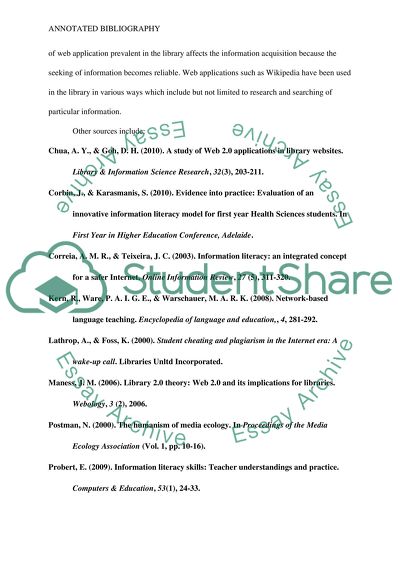The Impacts of Internet on Information Literacy and Library Skills Annotated Bibliography. Retrieved from https://studentshare.org/information-technology/1618242-the-impacts-of-internet-on-information-literacy-and-library-skills
The Impacts of Internet on Information Literacy and Library Skills Annotated Bibliography. https://studentshare.org/information-technology/1618242-the-impacts-of-internet-on-information-literacy-and-library-skills.


